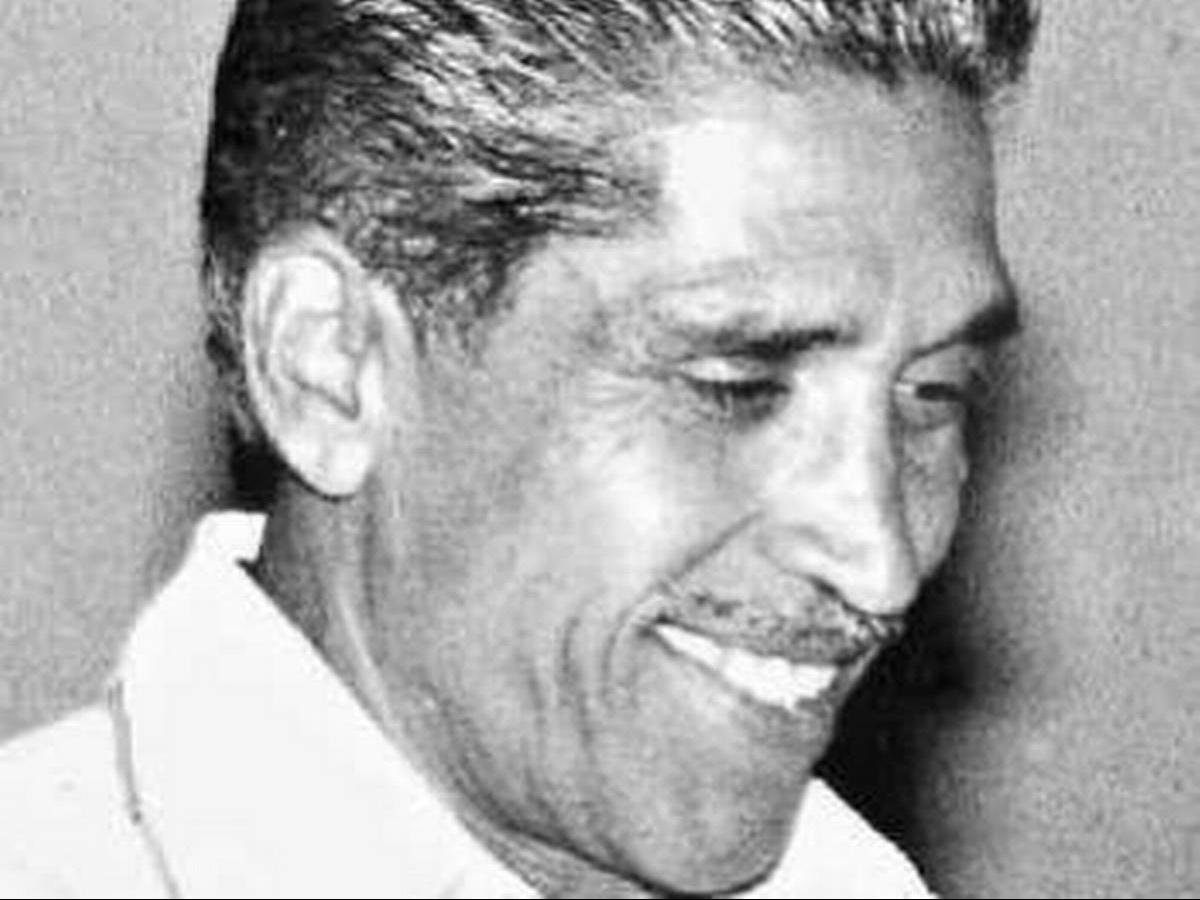
It’s disheartening to think about a sportsman who had such success as an athlete but is now gone in history and died in poverty. He does, however, rank among the top Indian sportsmen. We are talking about a legendary hockey player Shankar Laxman. In the 1950s and 1960s, he was a defensive wall in front of the Indian goal. Laxman was consistently present in the team that dominated the circuit throughout his reign, and he is considered the best goalkeeper India has ever produced.
Few people are familiar with him, but hockey fans are well aware of the grandeur of the gentleman who served as a goalkeeper for the “Indian Hockey Team and was standing like a rock at the 1956 Olympics.”Moreover, Shankar Laxman was the first goalkeeper to be named captain of an international hockey team, and the Indian hockey team won the Asian Games in 1966 under his guidance. Moreover, Laxman was awarded the Arjuna award and the Padma Shri by the Indian Government.
Early Life & Background
Shankar Laxman was born on 7th July 1933 in the small town of Mhow Madhya Pradesh he dropped out of school as a teenager to enlist in the Indian Army. Primarily a football player, he learned hockey in the army and represented the armed forces in Indian competition, where he was quickly selected as the Indian national team’s goalkeeper. Shankar Laxman took his last breath in his hometown on 29th April 2006 aged 72.
International matches during rivalry of India & Pakistan
Shankar Laxman competed in six major international finals, all against Pakistan, during an era of strong hockey rivalry not to mention political turmoil between India and Pakistan. He won his first Olympic gold medal in 1956 but then went on to lose three more finals in a row at the Asian Games in 1958 and 1962, as well as the 1960 Olympics. With Laxman’s help, India won the 1964 Olympics and the 1966 Asian Games.
A shift from football to hockey
Laxman was a football goalkeeper. When he enlisted in the army in 1947, he was sent to the 5th Maratha Light Infantry, where he continued to play football. His colleague Major Sanwal Singh persuaded him to switch to hockey goalkeeping only in 1953. This has permanently altered Shankar Laxman’s professional trajectory.
The world’s first goalkeeper caption
Shankar Laxman’s career trajectory was forever altered by his commitment to goalkeeping. He was chosen for the Brigade and Division Hockey team in 1954, as well as the Command the following year. Laxman’s selection for the prestigious Services team and later the Warsaw International Hockey Festival (Poland) in 1955 was a turning point in Laxman’s career.
Laxman’s Midas touch with Indian hockey has continued unabated for a decade after then. Shankar Laxman has been in three Olympic finals, two of which he won without conceding a single goal. Applause and awards abound for his accomplishments.
The International Olympic Committee awarded him a diploma for being the best goalkeeper in the world after the 1956 and 1964 Olympics. Shankar Laxman’s accomplishments are one-of-a-kind and unrivaled.
He was the world’s first goalkeeper-captain in an era when leadership was reserved for flashy scorers. He was not given the leadership even when he was competing in his third Olympics (1964), but his heroics there changed people’s attitudes; two years later, he led India to its first Asian Games gold in Bangkok. India had to wait another 32 years to achieve the feat.
Three Olympic finals (1956, 1960, and 1964) were played against the same opponents, but only one goal was allowed. Similarly, only two goals were conceded in three Asian Games finals (no final in 1958, but only title decisive leagues in 1962 and 1966). Six finals against Pakistan, but Laxman only surrendered three goals.
Major Recognition
- In 1964, Laxman competed in his final Olympics in Tokyo, when India overcame Pakistan to reclaim the gold medal. In the same year, he was awarded the prestigious Arjuna Award.
- He progressed through the ranks of the Maratha Light Infantry to become Honorary Captain before retiring in 1979.
- Laxman captained the Indian hockey team at the Asian Games in Bangkok in 1966 and was awarded the Padma Shri in 1967 for his outstanding service.
- He also received the Air Vice Marshal Jaswant Singh Trophy as the finest Services athlete.
Shankar Laxman was called “ The Rock of Gibraltar”.
The opponents named him the “Rock of Gibraltar” because it was so tough for them to pass the ball past him. Moreover, People always get awestruck to watch his game.
What prompted Laxman to declare his retirement?
Amidst his outstanding performances, Laxman was unfairly treated by the nation’s sports organizations. He was disappointed and surprised when he was left out of the 1968 Mexico Olympic team.
After a barrage of criticism, the Indian Hockey Federation had to reverse its decision. However, the pain was so intense that he turned down the offer and announced his retirement.
India ranked third in the Mexico Olympics, and Indian hockey was never the same after that.
Life after quitting sports
Laxman stayed in the Army after quitting sports, retiring as a captain of the Maratha Light Infantry in 1979. After 13 years of meritorious service, he was only paid a sum of Rs. 25,000.
Painful end of legendary sportsmen
Shankar Laxman was suffering from major financial crises during his last days of life. Laxman was forced to open a small ration store for his and his family’s livelihood.
Laxman lived in poverty and was diagnosed with gangrene after he was forgotten by hockey officials and fans alike. Amputation was recommended by doctors, but he preferred naturopathic treatments. The £300 offered by the Madhya Pradesh sports government for his treatment was considered as more of a disgrace than assistance, and Laxman’s grandson chastised the Indian Hockey Federation for their indifference.
Shankar Laxman died in 2006, with full military honors, Laxman was cremated in Mhow. His wife, three daughters, and a son were his only survivors.
Shankar’s contribution vanished in the annals of time,
A soldier who achieved so much for his nation and served with distinction was forced to live in abject poverty for the remainder of his life. Regrettably, his name is nearly lost in the annals of hockey.
However, the legacy he left behind is something to be proud of. After all, he didn’t play for the sake of fame or notoriety, but the love of the game. He was good at it, and India benefited as a nation.
Is cricket drowning India’s other sports?
After hearing about Shankar Laxman’s condition and the life he lived, we’re left wondering why such brilliant athletes are forced to live such a life. Why didn’t they gain more renown than other athletes, such as our great cricketers, who are paid in crores and live a luxury lifestyle as celebrities?
Even though cricket is not our national sport, our Board, Government, sponsors, and the media treat it as a celebration.
It’s not only about Shankar Laxman, people merely know about Dhyan Chand and his contribution. We as an audience are even responsible for this. We need to give more consideration to other athletes and games.
Many biopics on various sportsmen were produced by Bollywood, however, they just charged quadruple the cost of presenting the athlete’s persona, which they may not have earned in their entire lives.
We need to change our habits as viewers, not just during the Olympics, but throughout the journey.
Author Bio – My name is Richa Tiwari I am a content writer who loves to pour thoughts on different niches. I have recently completed my internship with a media-based company and now working as a full-time content writer with one startup company. Along with website content, I love writing articles, moreover, my two articles on very important topics Procrastination & Dopamine got published for The Times of India Readers Blog.


